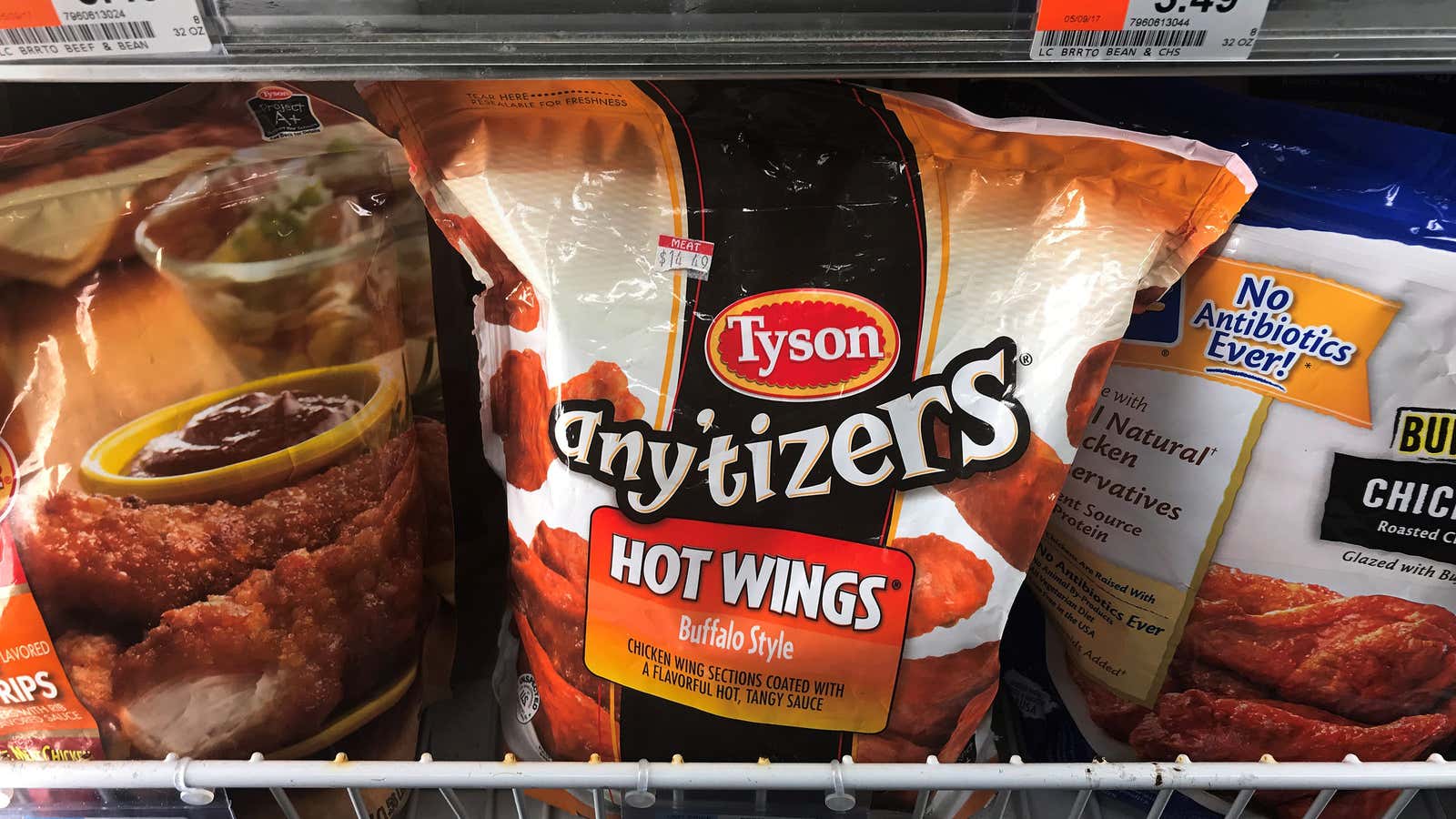Americans are tired of cooking at home and are now buying more pre-made foods to feed themselves during the ongoing pandemic.
Growing fatigue about food preparation, cooking, and dishwashing has meant significant growth in sales of meal kits, prepared foods at grocery stores, as well as take-out and delivery orders from restaurants.
On Monday, Tyson Foods, the largest meat processor in the US, said retail demand for its prepared items surged during its most recent quarter in both average sales prices and volume. “Consumers are really getting tired of cooking at home,” Dean Banks, Tyson’s president and CEO told analysts on a conference call.
This shift in consumer behavior helped lift sales of prepared foods to $2.27 billion, a 1.6% increase compared to the same period last year. That might not seem like a lot, but it includes reduced demand from restaurants, hospitals, and schools.
Tyson’s opportunity in a crisis
Banks says consumer fatigue has “really benefited us through the crisis”, boosting retail volumes at the company up by over 17% over the last year. A shift to buying online also helped the company. E-commerce sales grew 126% in the quarter compared to last year.
Tyson also made more money off of the retail sales of Jimmy Dean breakfasts, Sara Lee cakes, and Hillshire Farm sausages. Its operating margin for prepared foods in the quarter rose from 4.8% a year ago to 10.9%.
Cooking at home vs dining out
While spending at grocery stores spiked as consumers stocked up for lockdowns earlier in the year, data from the US Census shows several months of steady declines and increased spending at bars and restaurants. The latter includes food eaten on-site, takeout and delivery orders, as well as meal kits from restaurants, which have become increasingly popular.
